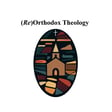
Understanding The Evangelical Jesus: Tradition, Innovation, and the Search for Theological Depth
In this episode, Dr. John Stackhouse delves into the history and core beliefs of Evangelicalism, highlighting its emergence in the 18th century from Puritanism and Pietism. He clarifies that Evangelicals take the Bible seriously, are Trinitarian Christians, and recognize each other as kin, working together to spread the message of Jesus Christ. The conversation also explores the criticism that Evangelicals have received for being loudmouthed and activist, and how this has affected their approach to theological innovation.
Dr. Stackhouse emphasizes the importance of theology for Evangelicals and suggests that innovation has been difficult due to a defensiveness that has developed over the years. However, he argues that Evangelicals have rich theological resources to draw from, including their understanding of Jesus' work, the Holy Spirit, and the Bible as the voice of God. He highlights the need for the Church to remain intellectually and theologically sharp while still caring for the poor, citing examples of Latin American evangelicals who have successfully done this.
Throughout the conversation, he raises important questions about the role of Evangelicalism in today's world and the challenges it faces in maintaining its theological depth while being innovative and responsive to the needs of society. This episode will be of interest to anyone seeking a deeper understanding of the Evangelical tradition and its place in contemporary Christianity.



